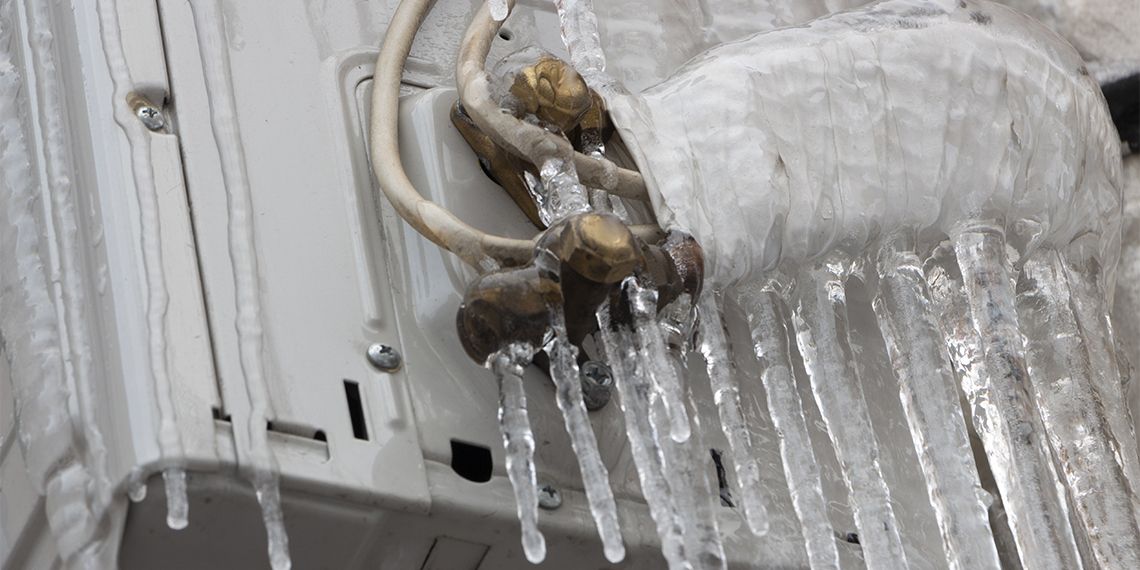Imagine a scorching summer day, and your air conditioner pipes are covered in a layer of frost or ice. It might sound counterintuitive, but air conditioner pipes freezing is a common issue that can disrupt your cooling comfort. In this guide, we’ll delve into the chilling truth behind why AC pipes freeze and how to address this icy predicament.
Understanding the Phenomenon
Air conditioner pipes freezing is often a result of an imbalance between the evaporator coil’s temperature and the refrigerant flowing through the system. Here’s how it happens:
Low Refrigerant Levels: One of the leading causes of freezing pipes is a low level of refrigerant in the system. Refrigerant is responsible for absorbing heat from the indoor air and cooling it down. When the refrigerant level is insufficient, the evaporator coil can become too cold, causing condensation to freeze on the pipes.
Restricted Airflow: Poor airflow across the evaporator coil can also lead to freezing pipes. Restricted airflow can be caused by clogged air filters, blocked vents, or issues with the blower motor. Reduced airflow prevents the evaporator coil from absorbing enough heat, leading to ice buildup.
Thermostat Settings: Setting the thermostat too low can cause the evaporator coil to become too cold, leading to condensation freezing on the pipes.
Addressing the Issue
Dealing with frozen AC pipes requires identifying the root cause and taking appropriate actions:
Check Refrigerant Levels: If you suspect low refrigerant levels, it’s crucial to have a professional HVAC technician inspect and recharge the system. Adding refrigerant without addressing the underlying leak is a temporary solution.
Improve Airflow: Regularly clean or replace air filters, ensure vents are unobstructed, and inspect the blower motor for any issues. Proper airflow helps prevent the evaporator coil from getting too cold.
Thermostat Adjustment: Set your thermostat to a reasonable temperature that allows the system to cycle without overcooling the evaporator coil.
Prevention and Maintenance
To avoid AC pipes freezing in the future, follow these preventive measures:
- Regular Maintenance: Schedule annual maintenance for your air conditioning system to ensure refrigerant levels, airflow, and overall system performance are optimal.
- Change Filters: Regularly change or clean air filters every one to three months to maintain proper airflow.
- Insulation: Properly insulate the exposed parts of your air conditioning system to prevent rapid temperature changes that can lead to freezing.
Conclusion: Defrosting the Situation
Frozen AC pipes can put a frosty damper on your cooling experience. By understanding the causes and taking preventive steps, you can ensure your air conditioner operates efficiently and effectively without freezing issues. Regular maintenance, proper refrigerant levels, and maintaining adequate airflow are key to keeping your cooling system running smoothly even on the hottest days of summer.
FAQs
1. Can I thaw frozen AC pipes on my own? It’s recommended to let the ice thaw naturally by turning off the air conditioner and allowing the system to defrost. Using heat sources or sharp objects can damage the pipes.
2. How do I know if my refrigerant levels are low? If you notice reduced cooling performance, ice buildup on pipes, or hissing sounds from the system, it’s advisable to call a professional technician for a refrigerant level check.
3. Can frozen AC pipes cause damage to the system? Yes, frozen pipes can cause stress on components, leading to reduced efficiency and potential long-term damage. Addressing the issue promptly can prevent further problems.
Zeeshan is a seasoned tech expert and senior writer at Teckrr.com. With over 10 years of experience in tech journalism, he brings insightful analysis and up-to-date information on the latest tech trends. Zeeshan holds a MBA degree from Business and Tech University and is known for his engaging writing style and ability to demystify complex tech topics. Stay connected with the cutting-edge of technology through his expert lens.

Leave a Reply